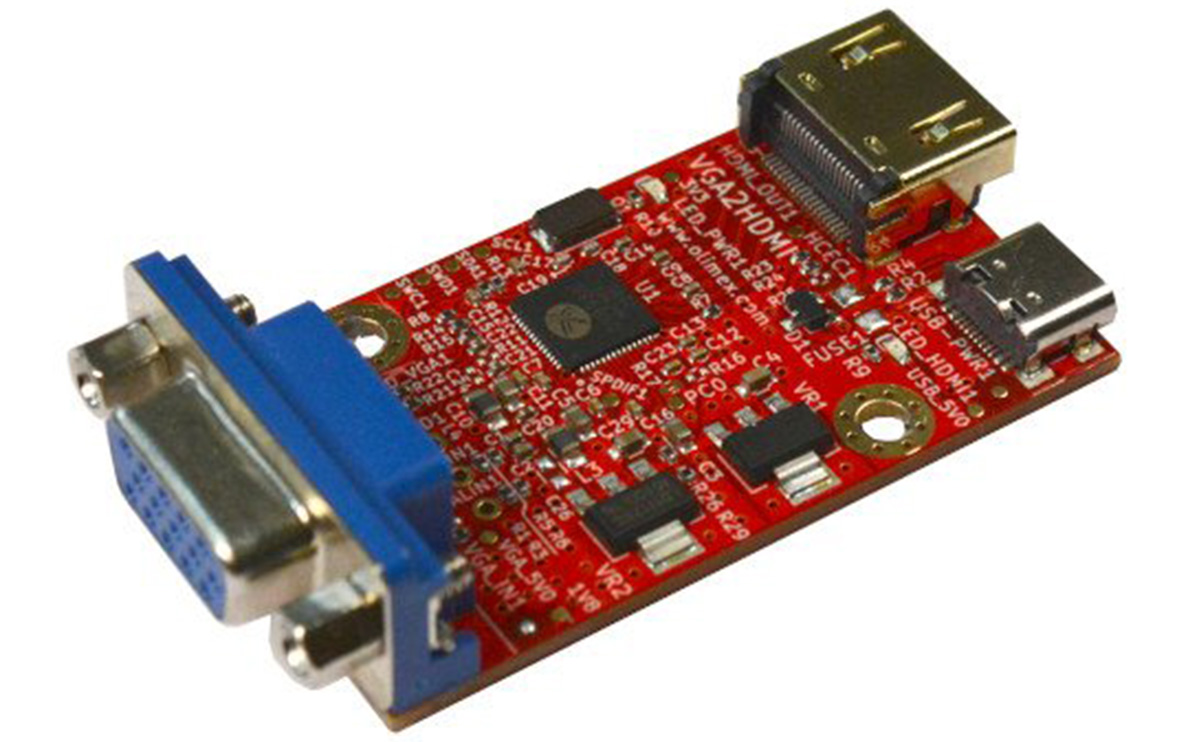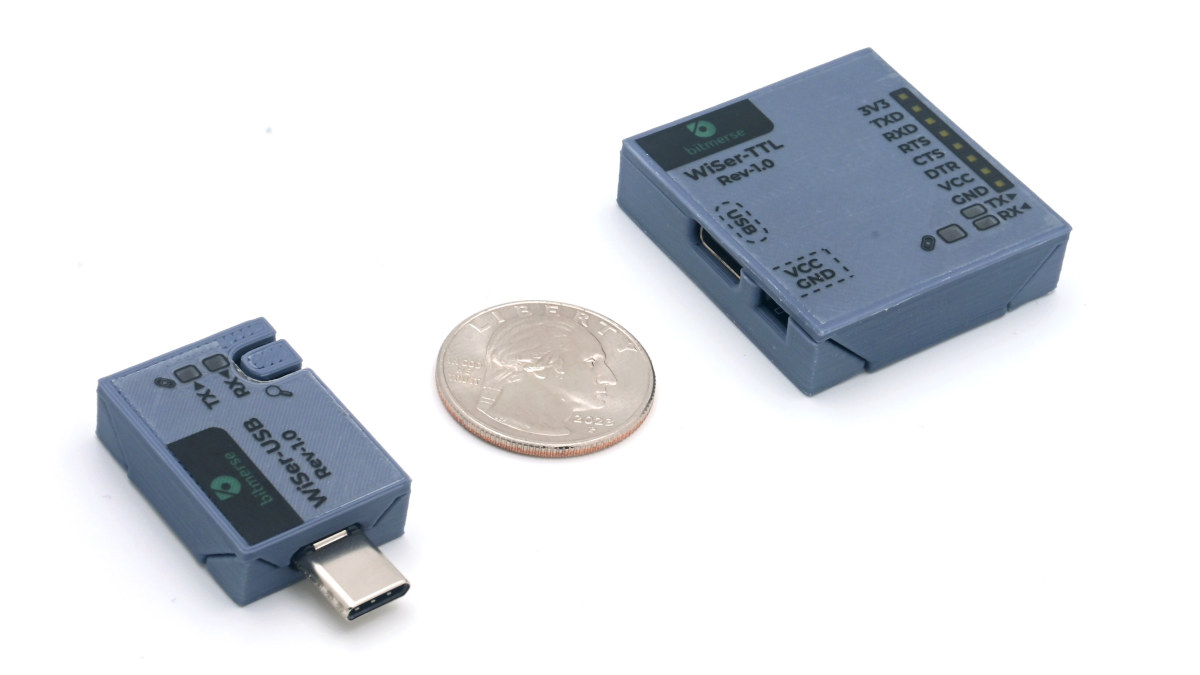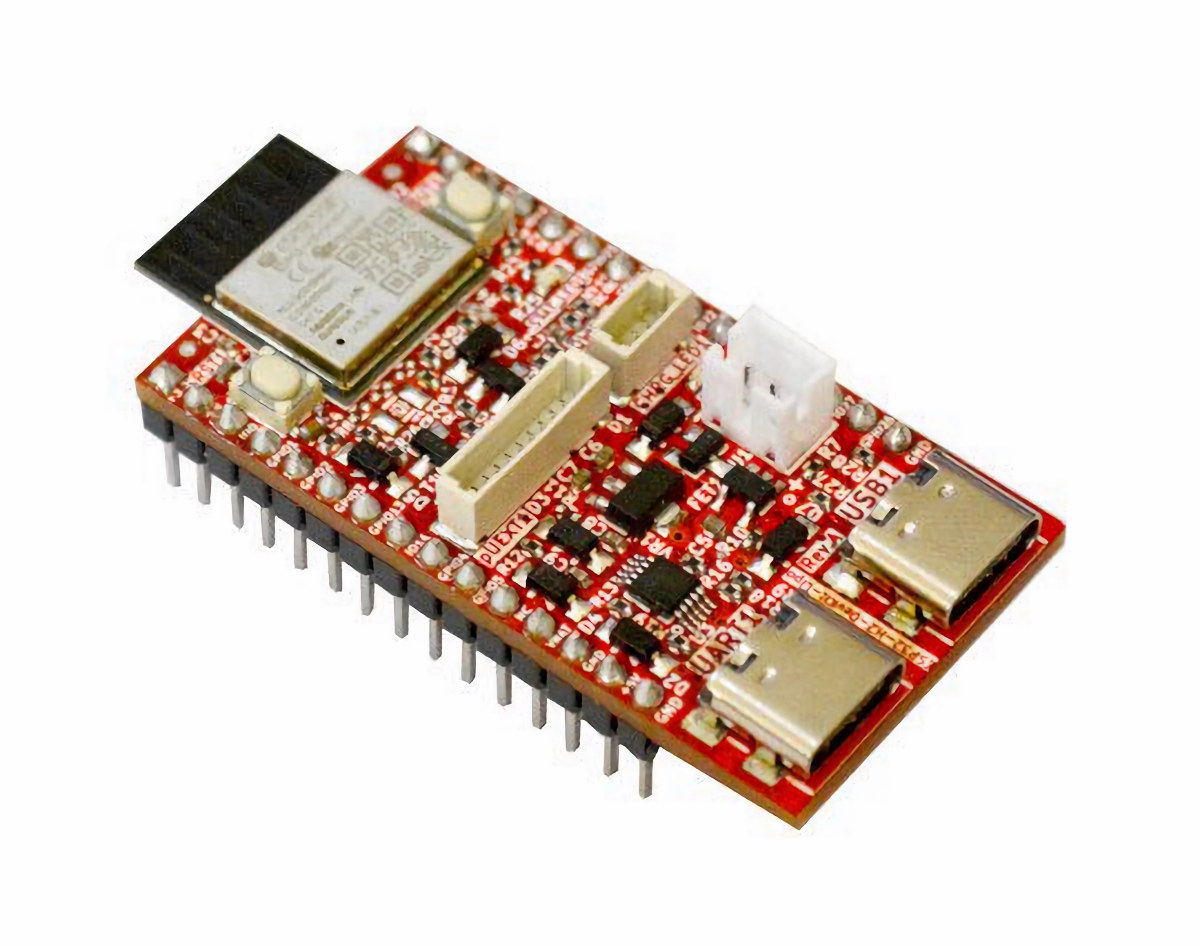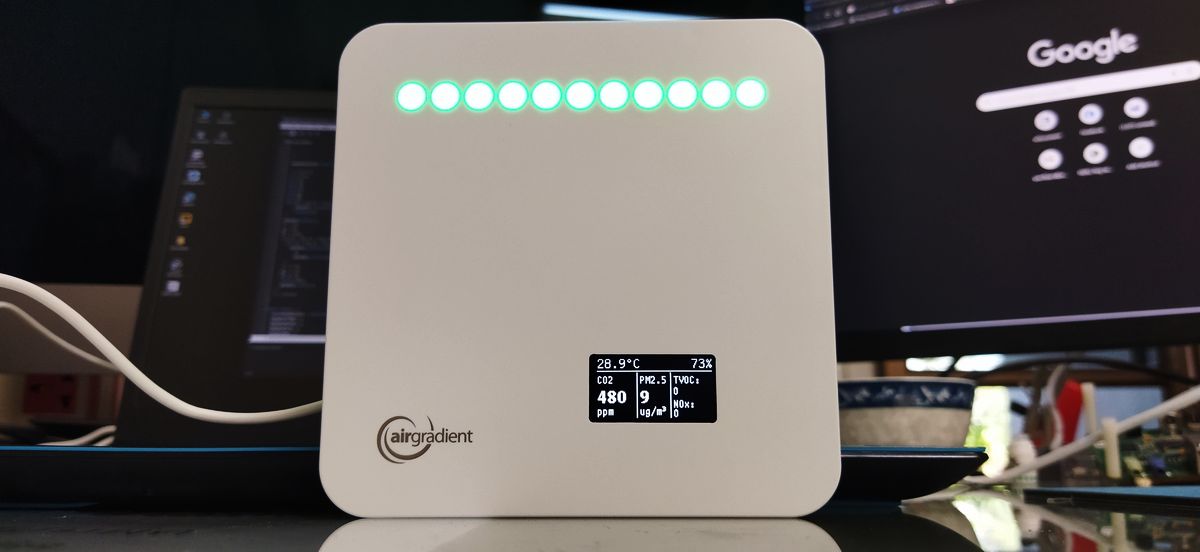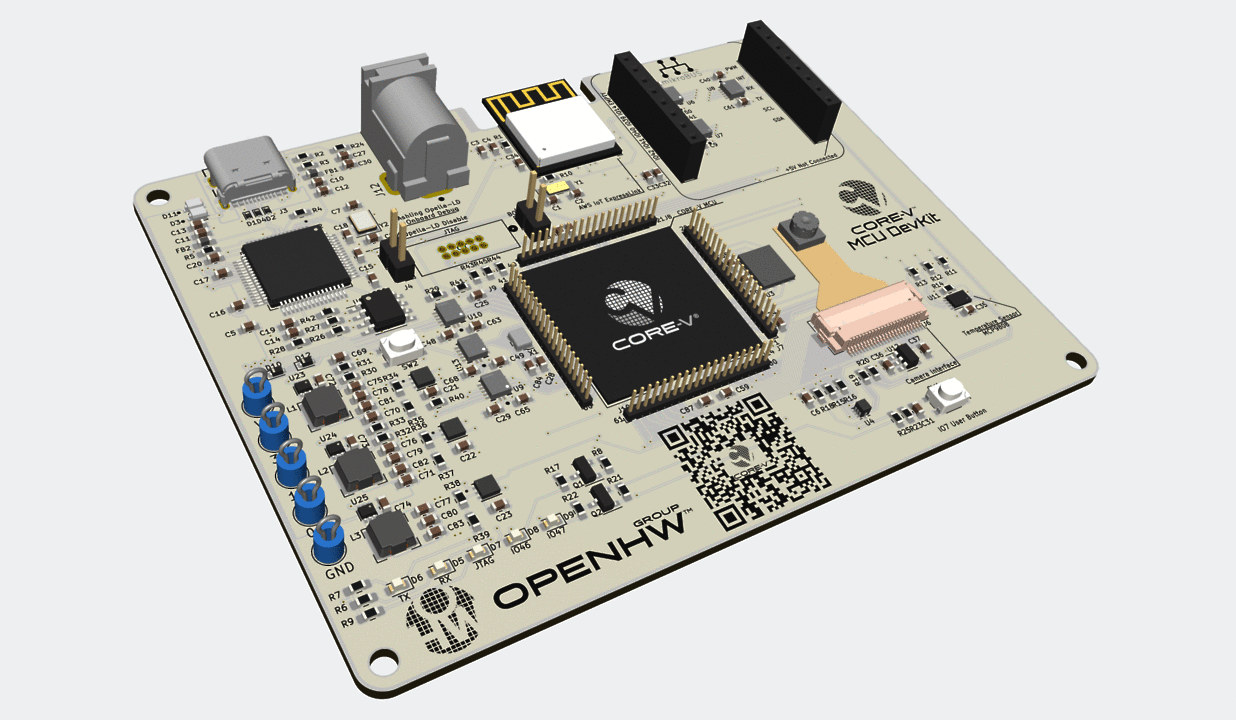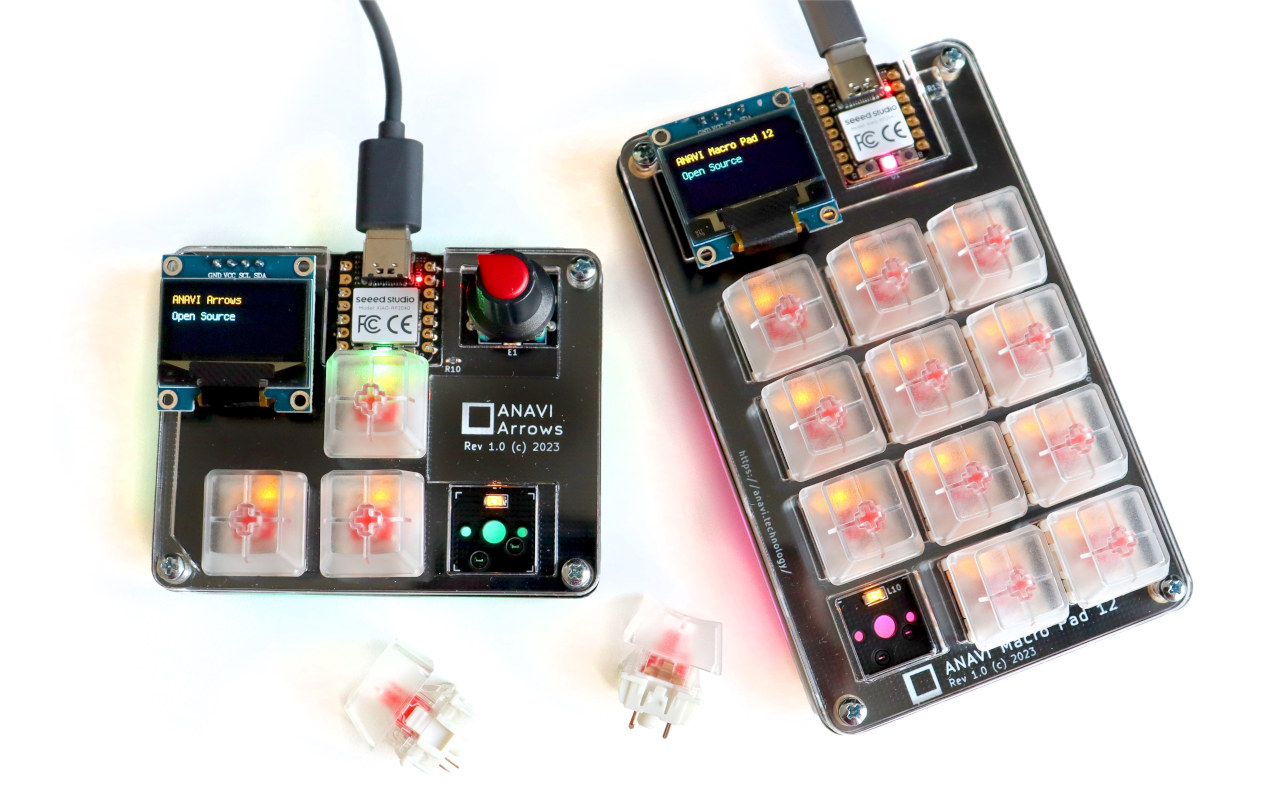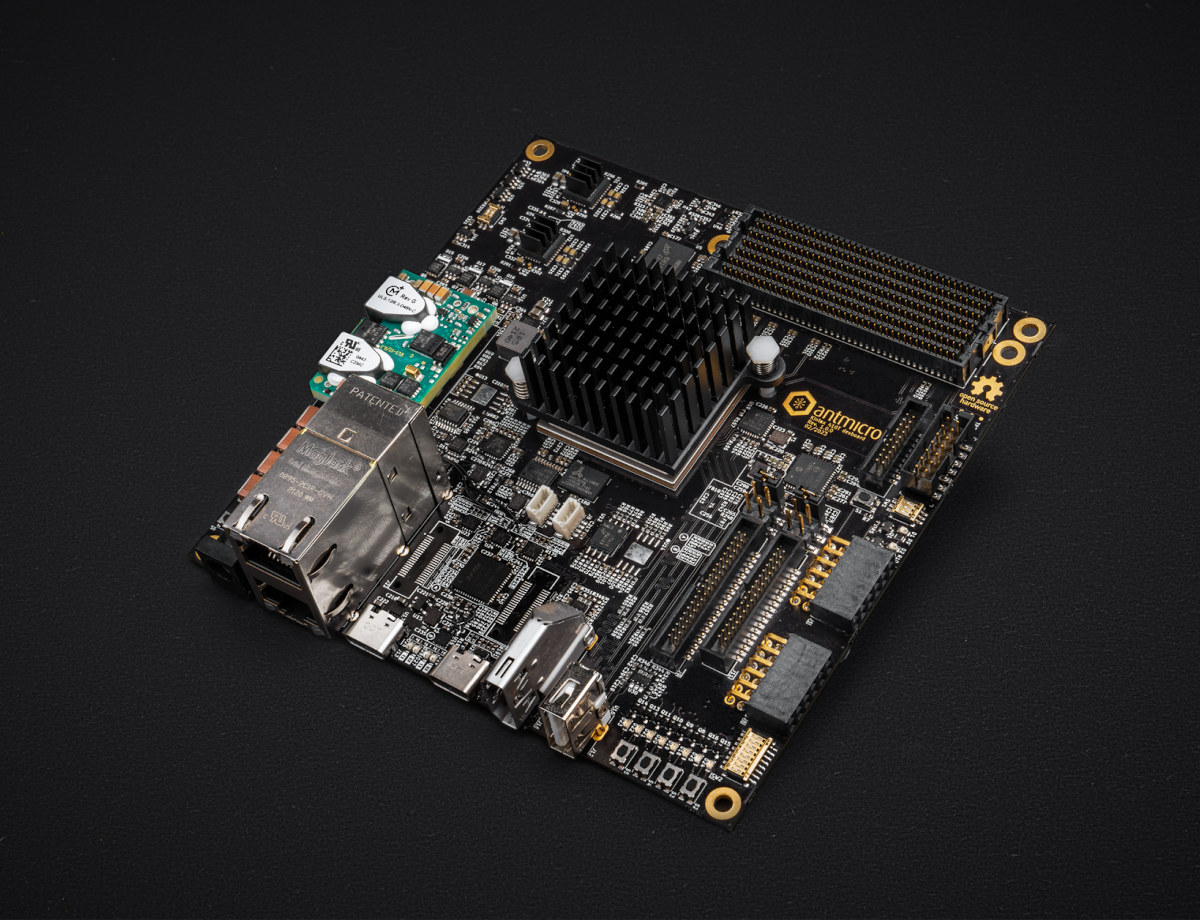Olimex VGA2HDMI is an open-source hardware VGA-to-HDMI converter specially designed and tested to work with the CERBERUS 2100, AgonLight 2, and Agon Origins boards. The board has a VGA port as input and an HDMI port as output and a USB-C port is there to provide the external power required for the board. In one of our previous posts, we wrote about the NovaVGA Shield, which adds VGA output to your Arduino UNO. Now, with the help of this board, that capability can be extended to HDMI. There are also extenders that carry VGA signals over Ethernet cables, a topic we have covered in another post. With this new board, you can convert that VGA signal to HDMI. It’s not like there aren’t other VGA to HDMI converters on the market; a quick Amazon search gave me the VENTION VGA to HDMI Adapter, but among them, most were HDMI to […]
Wiser wireless-to-serial kit eases the debugging and programming of embedded devices (Crowdfunding)
WiSer is a wireless-to-serial communication kit comprised of a USB dongle (WiSer-USB) and a USB TTL debug board (WiSer-TTL) – both built around an ESP32-S2 microcontroller – that allows users to establish a P2P wireless connection between a host computer and a development board or sensor. It works like a typical USB to TTL debug board except it operates over WiFi, and it’s especially useful to debug code, update firmware, log data, or transfer files without a USB cable or even a Wi-Fi router since the connection to peer-to-peer. It looks especially useful when the host and DUT are too far apart, and my review samples are often on another table around 1.5m from the nearest USB port of my laptop, so I could see some use for it myself… WiSer specifications: Wireless SoC – ESP32-S2 Wi-Fi (and Bluetooth) microcontroller USB – 1x USB Type-C port providing a virtual serial […]
FOSDEM 2024 schedule – Open-source embedded, mobile, IoT, robotics, RISC-V, etc..
FOSDEM – which stands for Free and Open Source Software Developers’ European Meeting – is a free-to-participate event where thousands of developers meet in Brussels on the first week-end of February to discuss open-source software & hardware projects. FOSDEM 2024 will take place on February 3-4 with 880 speakers, 818 events, and 66 tracks. Although I won’t attend, I’ve created a virtual schedule like every year with sessions most relevant to the topics covered on CNX Software from the “Embedded, Mobile and Automotive” and “Open Hardware and CAD/CAM” devrooms, but also other devrooms including “FOSS Mobile Devices”, “ Energy: Reimagining this Ecosystem through Open Source”, “RISC-V”, and others. FOSDEM Day 1 – Saturday, February 3, 2024 10:30 – 10:55 – Screen Sharing on Raspberry Pi 5 Using VNC in Weston and Wayland with the Yocto Project and OpenEmbedded by Leon Anavi In 2023, embedded Linux developers received eagerly awaited news: […]
8 Euros ESP32-H2-DevKit-LiPo is an open-source hardware Bluetooth 5 LE and 802.15.4 (Zigbee/Thread/Matter) board
Olimex ESP32-H2-DevKit-LiPo is an open-source hardware board based on ESP32-H2-MINI-1-N4 wireless module with Bluetooth 5 Low Energy (LE) and an 802.15.4 radio for Zigbee, Thread, and Matter connectivity, and that can be powered by a LiPo battery. The ESP32-H2 RISC-V microcontroller is coupled with 4MB flash in the wireless module, and the board comes with two rows of 15 pins for up to 19 GPIOs with alternate functions such as ADC, SPI, UART, I2C, etc… plus pUEXT and Qwiic/Stemma connectors for expansion modules. The board also features two USB-C ports, one for connected directly to the ESP32-H2 and the other for USB to UART programming/debugging. ESP32-H2-DevKit-LiPo specifications: Wireless module – ESP32-H2-MINI-1-N4 MCU – Espressif Systems ESP32-H2 32-bit RISC-V microcontroller at up to 96 MHz with 320 KB SRAM, 128 KB ROM, 4 KB LP memory, Bluetooth 5.2 LE/Mesh and 802.15.4 (Zigbee/Thread/Matter) radios. Storage – 4MB flash storage PCB antenna Dimensions […]
AirGradient ONE Kit Review – An open-source indoor air quality monitor
The product we are reviewing today is the “AirGradient ONE” air quality monitor kit which is an updated version of the earlier AirGradient air quality monitor. The device is equipped with sensors from Sensirion and Plantower, allowing it to measure many air quality parameters such as CO2, PM2.5, TVOCs, NOx, temperature, and humidity. It is an indoor air quality monitor that is both open-source software and open hardware. This means that the Arduino source code, schematic diagrams, PCB, and 3D models of the enclosure are available to developers. AirGradient ONE DIY Kit Unboxing The device was packaged within a cardboard box, with a greeting card from the manufacturer. The card features a QR code linking to a webpage with the installation guide. Since I requested the Kit version (there’s also a fully assembled model), some sensors were not pre-assembled and they were well-packaged in separate seals. The main PCB was […]
CORE-V MCU Devkit features open-source 32-bit RISC-V core, Amazon AWS IoT connectivity, Mikrobus expansion, VGA camera
The CORE-V MCU DevKit is an open-source hardware board based on the CORE-V microcontroller featuring the open-source OpenHW CV32E40P0 RISC-V MCU core and a Quicklogic ArticPro 2 eFPGA. The board offers wireless connectivity to Amazon AWS through an ESP32-C3 AWS IoT ExpressLink module, a MikroBus connector for expansion, a VGA camera module, JTAG and serial debugging, as well as a temperature sensor and a few buttons. The development kit can be powered by its USB Type-C port (5V) or a DC jack taking 5V to 18V DC. CORE-V MCU devkit specifications: Microcontroller – CORE-V MCU OpenHW CV32E40P RISC-V processor core (in-order 4-stage RISC-V RV32IMFCXpulp CPU based on RI5CY from PULP-Platform) with 512KB SRAM, boot ROM Quicklogic ArticPro 2 eFPGA Storage – 4MB QSPI flash Wireless – Espressif AWS IoT ExpressLink Module for AWS IoT cloud interconnect Camera – Himax HM01B0 ultra-low-power QVGA (320×240) CMOS image sensor as found in the […]
ANAVI launches CircuitPython-programmable Macro Pad 12 & Arrows mechanical keyboards (Crowdfunding)
ANAVI Technology has launched two more open-source hardware mechanical keyboards based on the Raspberry Pi RP2040 microcontroller, equipped with an OLED display, and programmable with CircuitPython: the ANAVI Macro Pad 12 with 12 keys and the ANAVI Arrows with four keys and a rotatory encoder. The new mechanical keyboards follow ANAVI Macro Pad 10 & Knobs input devices equipped with the same Seeed Studio XIAO RP2040 MCU module running the KMK firmware written with CircuitPython, but with different form factors and features. ANAVI Macro Pad 12 specifications: MCU module – Seeed Studio XIAO RP2040 with Raspberry Pi RP2040 dual-core Cortex-M0+ microcontroller @ up to 133 Mhz with 264KB SRAM, 2MB SPI flash, USB Type-C port Keys – 12x Gateron red, linear, non-clicky mechanical switches and transparent keycaps with yellow LED backlighting Display – OLED display connected to I2C slot (can be replaced with another I2C module) Host interface – USB […]
Antmicro releases open hardware AMD Kintex-7 K410T development board, launches open hardware portal
Antmicro has designed an open hardware AMD Xilinx Kintex-7 K410T FPGA development board in KiCad 6 mostly to synthesize custom RISC-V-based processing platforms and work on the OpenTitan Root of Trust project. Separately, the company has also launched an open hardware portal sharing some of the KiCad and Blender designs they’ve worked on over the years. Open-source hardware AMD Xilinx Kintex-7 K410T development board Key features and specifications: FPGA – AMD-Xilinx Kintex-7 K410T FPGA with 400K logic cells, 16 Gigabit transceivers operating at 12.5Gb/s. System Memory – 512MB of DDR3L memory, 8MB of SRAM memory Storage – 32MB (256Mbit) of (Q)SPI NOR flash, assembly option for 2x QSPI flash, microSD card slot Video Output – HDMI port Networking – 1x Gigabit Ethernet RJ45 port, 1x 10/100M Ethernet port USB USB 2.0 Type-A host connector USB Type-C connector for FTDI JTAG and debug Expansions 2x PMOD connectors FMC+ connector with PCIe […]


